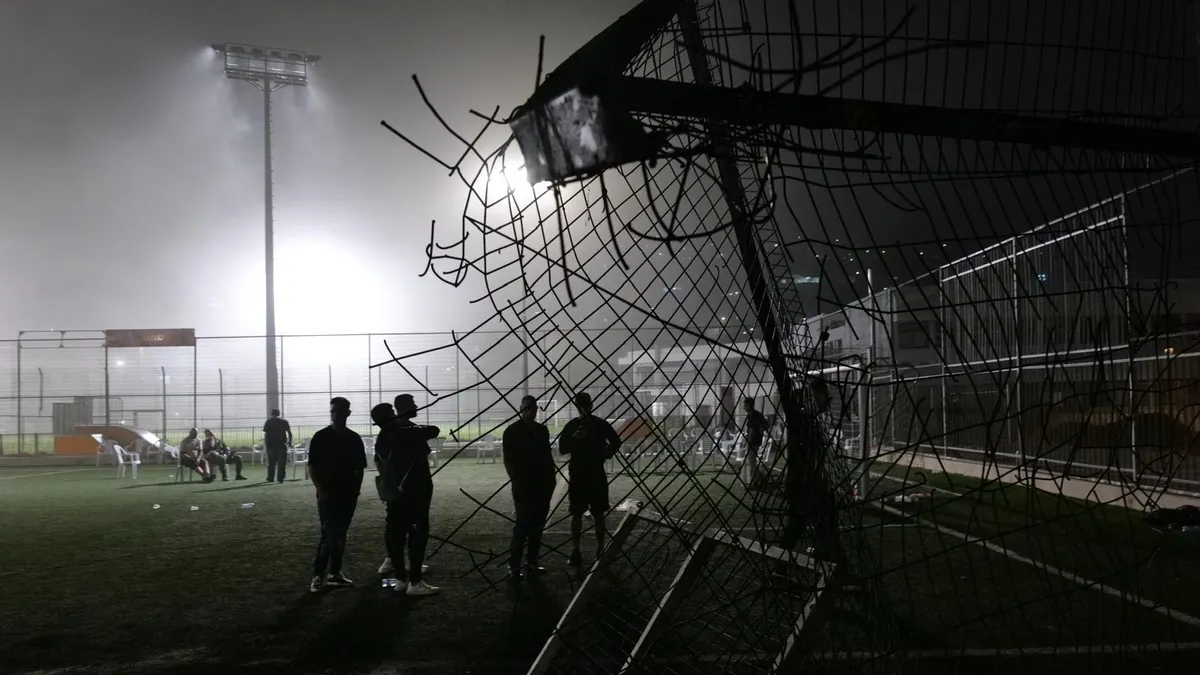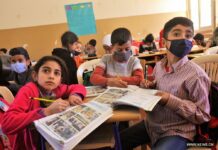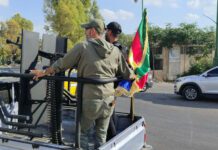
A missile attack on the occupied Golan Heights has intensified tensions between Israel and Hezbollah, raising fears of a broader regional conflict. The Israeli army announced that dozens were killed or wounded in the town of Majdal Shams on Saturday, July 27, following a missile strike allegedly launched by Hezbollah from southern Lebanon. However, Hezbollah has denied any involvement in the attack.
The Israeli military reported that helicopters and army forces, in cooperation with Magen David Adom (MDA), were working to evacuate casualties from the site. According to MDA, the incident resulted in nine deaths and 34 injuries, including 17 serious cases.
In a subsequent statement, the Israeli army clarified that a missile, not a drone, struck Majdal Shams. Chief of Staff General Herzi Halevy held a consultation with top military officials, including the Commander of the Northern Command and the Chief of Operations, to assess the situation.
Israeli military spokesman Daniel Hagari announced preparations for a response against Hezbollah, accusing the group of launching the missile. Hagari labeled the attack as “the bloodiest on Israeli civilians since October 7.” In contrast, Hezbollah issued a statement denying responsibility, claiming no connection to the incident and suggesting the missile targeted a football field in Majdal Shams.
The attack has prompted strong reactions from Israeli political leaders. Far-right National Security Minister Itamar Ben Gvir called for immediate military action against Lebanon, asserting that Israel is in a state of war in the north. Finance Minister Bezalel Smotrich and other right-wing figures echoed these sentiments, with Smotrich advocating for the assassination of Hezbollah’s Secretary-General Hassan Nasrallah.
Prime Minister Benjamin Netanyahu and President Isaac Herzog condemned the attack, with Netanyahu vowing that Hezbollah would “pay a heavy price.” The Israeli army has since launched airstrikes on several towns in southern Lebanon, including Burj al-Shamali and Khiam.
The recent attack in Majdal Shams follows a series of cross-border incidents between Israeli forces and Hezbollah. Since October 2023, Lebanese and Palestinian factions have been exchanging daily bombardments with Israeli forces across the Blue Line. These factions have conditioned the cessation of their attacks on an end to Israeli military actions in Gaza, which have resulted in significant Palestinian casualties.
Israeli forces have targeted buildings and infrastructure in southern Lebanon in response to Hezbollah’s actions. Israeli artillery shelling recently ignited fires in the town of Aitaroun, southern Lebanon. Additionally, Israeli airstrikes targeted locations in Kfar Shuba and other areas, leading to further escalation.
The escalating violence has drawn concern from international and local leaders. US officials expressed deep concern that the incident could spark an all-out war between Israel and Hezbollah. The UN Special Coordinator for Lebanon and the Commander of UN peacekeeping forces called for maximum restraint to avoid further escalation.
Iranian officials have also weighed in on the incident. Mojtaba Amani, the Iranian ambassador to Lebanon, stated that Iran does not expect Israel to launch a war against Hezbollah. Amani emphasized that Iran seeks to reduce regional tensions, but warned that Iran is not afraid of conflict if it arises. He reiterated that Iran views the chances of an all-out war as slim due to the existing power dynamics.
Meanwhile, Lebanese and Palestinian factions have continued their daily bombardments across the Blue Line, citing ongoing Israeli military actions in Gaza as the cause. Former Lebanese MP and Druze leader Walid Jumblatt condemned the targeting of civilians and warned against falling into Israeli provocations.
Druze community leaders in Syria’s Suwayda province condemned the attack. Sheikh Hikmat Al-Hijri called the bombing a “heinous crime” and urged international bodies to hold the perpetrators accountable. Al-Hijri emphasized the importance of protecting civilians and maintaining peace in the region.








